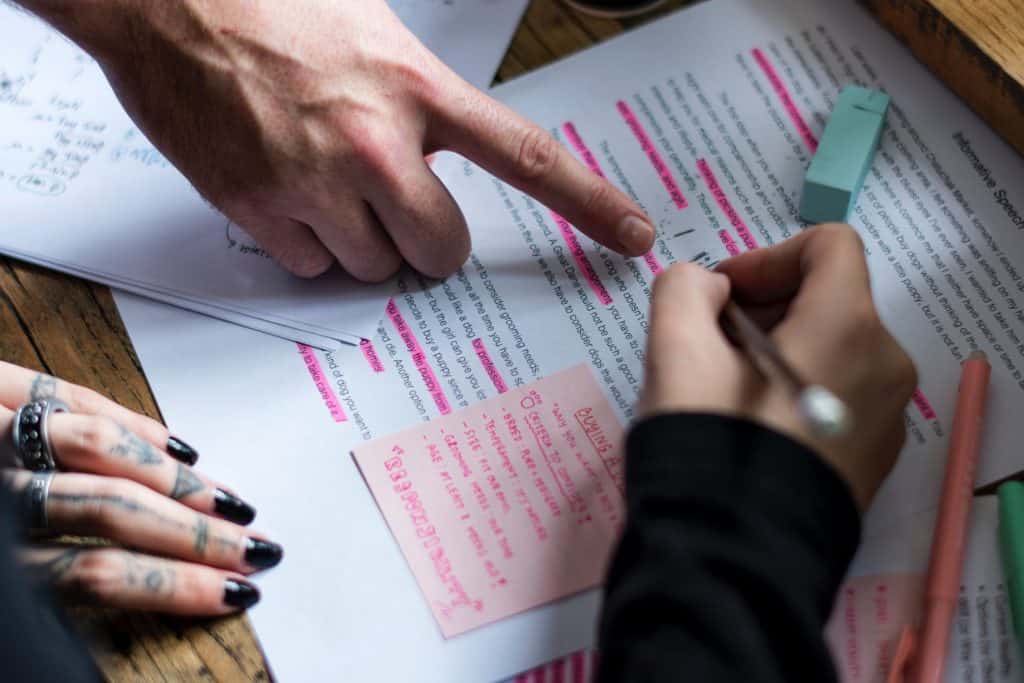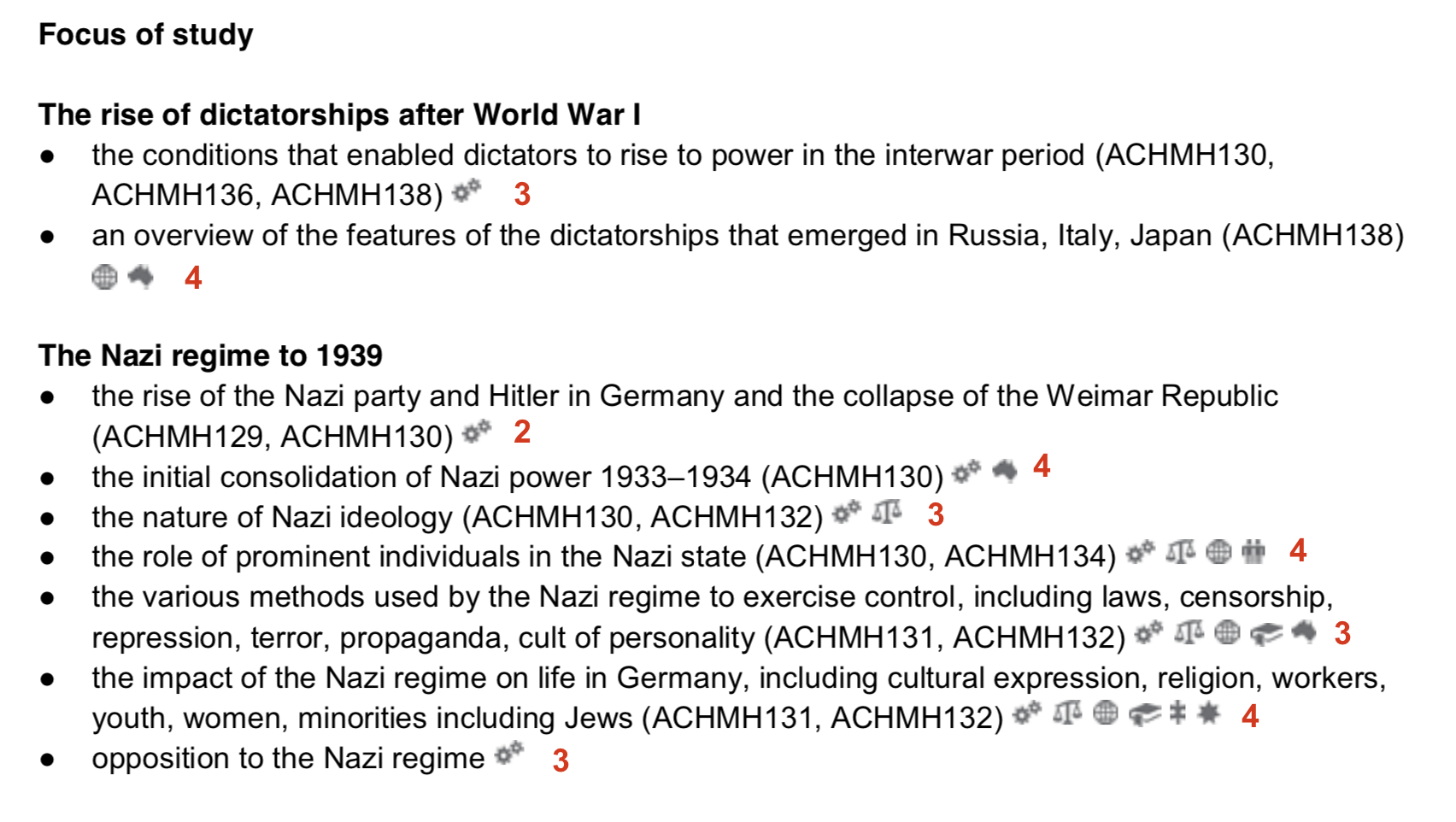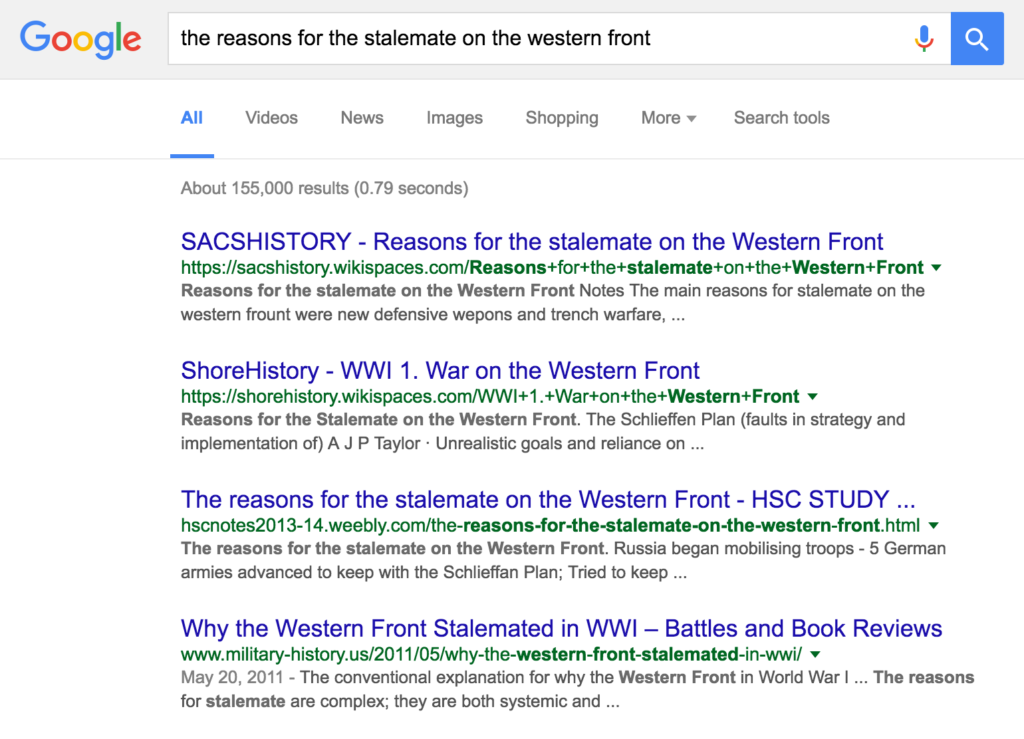When it comes to HSC Modern History, you really need a good teacher, but sometimes, when life gives you lemons, you need to make lemonade.
“Bad HSC Modern History teachers” generally fall into four categories:
- They’re bored: imagine teaching the same thing year in and year out for years on end, making them disengaged from the subject.
- Different teaching style: maybe they’re an advocate for rote-learning but you’re an audio-visual learner.
- They’re rushed: there is too much content and not enough time so they end up skimming over everything.
- Large classes: classes of over 25 are generally difficult to teach as there is no one-on-one time.
It’s not that the teacher is necessarily bad at teaching, it’s just that they’re bad for your learning.
When you have a bad teacher it’s often hard to learn the content heavy information that you get in HSC Modern History.
Whether you feel like you want to learn more than is covered in class, or want to get ahead in the course, teaching yourself all the Modern History content can seem overwhelming.
But don’t worry!
Below are 6 easy steps to mastering HSC Modern History on your own terms!
Step 1: Use the Syllabus
Go through the HSC Modern History Syllabus (click here) and figure out what you need to study.
It’s a bit of a read, so here’s some handy page numbers for you:
-
Part I: Core Studies – Power and Authority in the Modern World 1919-1946 (Page 64)
-
Part II: National Studies (from Page 66)
-
Part III: International Studies in Peace and Conflict (from Page 75)
-
Part IV: Change in the Modern World (from Page 82)
Now, print out the relevant parts of the syllabus!
Go through each dot point and then on a scale of 0 to 5, rate yourself on your perceived level of knowledge and understanding.
- 0 = I know nothing about this dot point. I’ve never even seen those words before.
- 5 = I know this dot point back to front. I could sit the HSC tomorrow and slay it!
Your syllabus should look something like this:
This will give you guidance on what you need to study, and where to spend your time. It’ll also give you pretty epic keywords for Google to get some basic information. Don’t believe me?
Whilst you shouldn’t use a simple Google search alone to find reliable information, it gives you a good starting point, with access to countless results with general factual information about the syllabus dot points.
Step 2: Use a HSC Modern History textbook
The simplest and easiest way to find out information relevant to the HSC Modern History Syllabus is through your assigned textbook.
The great thing about textbooks is that they have all the information clearly labelled, plus it’s designed in a way to get lots of information across without sending you searching for the correct answers.
Textbooks are also a valuable starting point for collating primary and secondary sources relevant to the syllabus that you can use in your notes and responses. The other great thing about textbooks is that they have plenty of pictures and graphs for all the visual learners out there.
Both your school and local libraries are likely to have a collection of HSC Modern History textbooks and resources that you can check out!
No clue how to write a source analysis? Here’s 9 Steps to Writing a Band 6 Historical Source Analysis for you to follow!
Step 3: Work a week ahead in school
The idea here is to learn the content at home the week before school so that in class you are revising information and consolidating knowledge rather than receiving new content.
Action Point:
Step 1: Pull out your HSC Modern History syllabus and find the current dot point you are working on
Step 2: Skip ahead 1-2 syllabus points
Step 3: Start learning information for your newly chosen syllabus point. This can be doing through textbook reading, historical documentaries and the internet.
Step 4: Write a short set of notes on this information.
Step 5: Revisit this set of notes after your history lesson at school.
Step 4: Create a HSC Modern History study group or get a study buddy
Learning with others is one of the best ways to remember information as you get to hear information delivered in a bunch of different ways and get to explain information, which helps you recall it later on!
Studies have shown that teaching others is the best way to learn and remember content.
Working with others will help you practice expressing the information that you know, while helping identify any gaps in your knowledge.
First, make sure you identify which areas you all need to improve on. Then find yourself a past paper and together, discuss what facts you’d need, arguments you could form, and what sources you would include to answer the questions.
You can complete the paper, and afterwards, mark each other’s papers and provide some feedback. Your study group may have used other sources or presented a different argument in response to a question.
Getting feedback from your peers and seeing how others have written their answers will help develop your own writing.
You can also meet regularly with your study group, to consolidate information that you’ve been learning each week in class and discuss the key facts and themes from your topic.
Step 5: Get help from other HSC Modern History teachers
Just because you’ve gotten the short straw and have a terrible teacher, doesn’t mean you can’t ask other teachers in the department/faculty for help with your study.
This is especially good if you are doing 2 or more history units as often teachers teach both modern and ancient history.
If you’re not sure on how another teacher could help your learning, here are our suggestions:
- Ask them to proofread an essay draft as a second opinion – this ensures you are not belittling your teacher because you don’t want to get on their bad side!
- “Hi Mr Goodman, would you be able to spend 5 minutes proof-reading my essay? I’d like to get a second opinion on my writing style.”
- Ask them for any additional resources they may have.
- “Hey Ms Bilton, I was just going through all of my sources the other day for the World War I British and German home fronts. Would you have any which would be really good?”
- If you have a free period when their lesson is on ask them to sit in on in one of their classes.
- “Hi Mr Curry, I’ve got a free third period. Would I be able sit in on your class? I’d like to see if anyone comes up with anything new that I haven’t previously considered.”
Step 6: Get an expert HSC Modern History tutor!
Tutoring can offer two huge advantages:
- A tutor helps by working to your specific learning style and pace
- A tutor can help you see things from another perspective, and teach in a way that’s totally different to your teacher (that may just click with you!)
For example, when we watch films about about World War 2 and the Nazis, we usually only know the Allied side. There are only a handful of films from the German perspective, and even less from nations like Estonia. If you got all the films in one room to tell you will have much more insight into World War 2!
Tutors don’t impose a manner of teaching on you: they adapt to your style and work with you to get through content. Not only that, most of the time they will have recently completed the HSC themselves! Our Hills District Expert Tutors can support you at our Castle Hill Campus, online or in your own home.
Looking for some extra help with HSC Modern History ?
We have an incredible team of HSC Modern History tutors and mentors who are new HSC syllabus experts!
We can help you master the HSC Modern History syllabus and ace your upcoming HSC Modern assessments with personalised lessons conducted one-on-one in your home or at our state of the art campus in Hornsby or Castle Hill!
We’ve supported over 5,000 students over the last 10 years, and on average our students score mark improvements of over 19%!
To find out more and get started with an inspirational HSC Modern History tutor and mentor, get in touch today or give us a ring on 1300 267 888!
Milana Gusavac thought she had seen the end of HSC until she realised that others out there needed help surviving year 12 just like she had. Now she’s a member of the Art of Smart team while perusing her studies at the University of Sydney, studying a Bachelor of Psychology. When not learning or helping others, Milana can be found with her nose in a book or marathoning TV shows.





